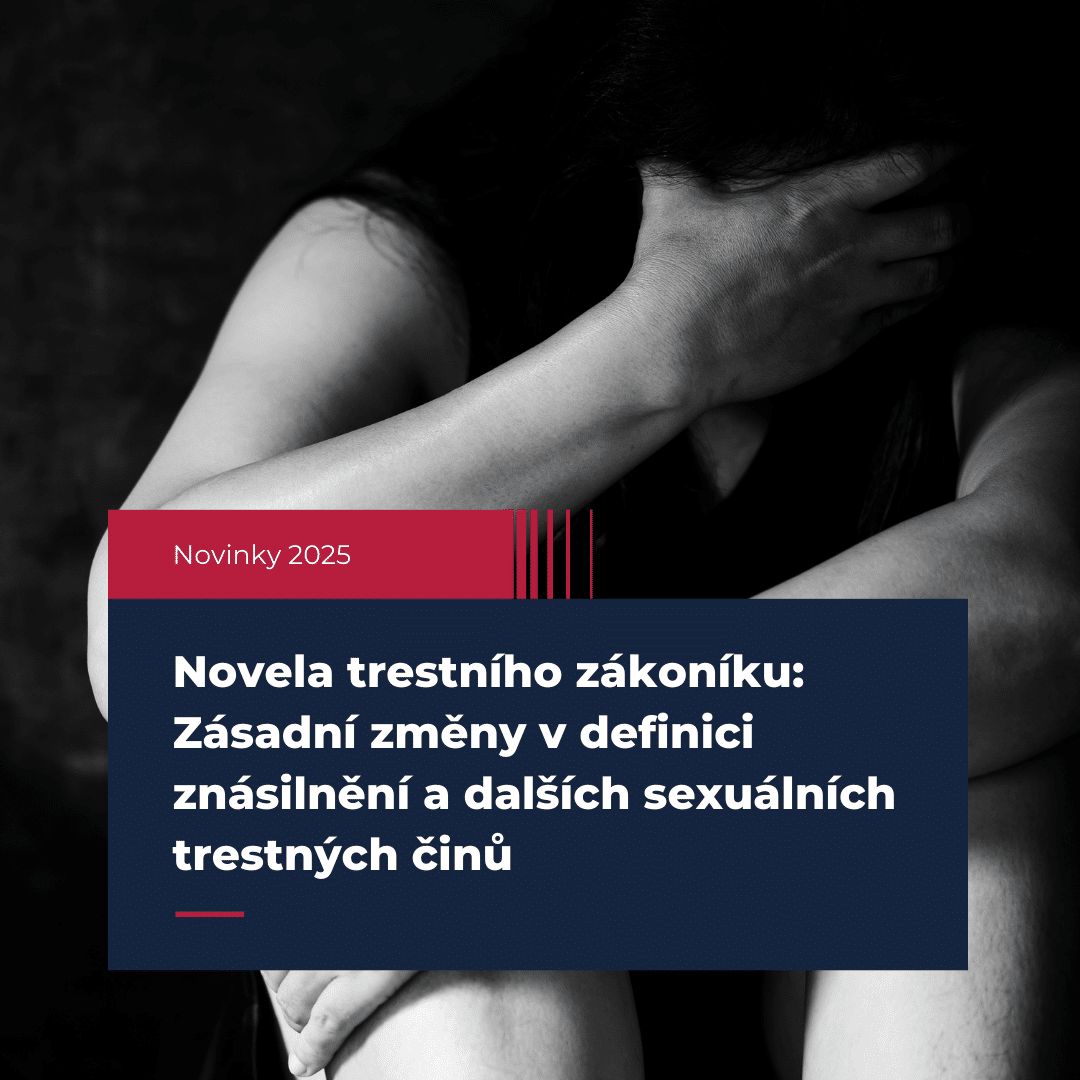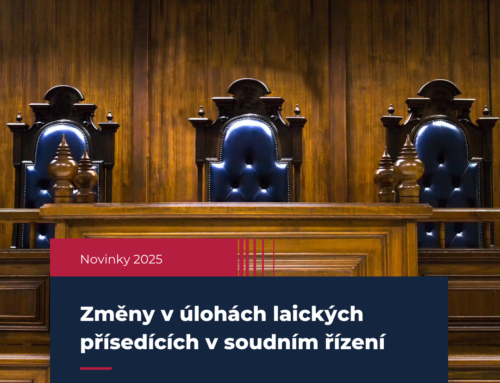From 1 January 2025, there are significant changes to sexual offences. The main objective of the amendment is to clearly define the offence of rape as non-consensual sexual intercourse, the basic principle being that "no means no".
Key changes
- Removal of the condition of threat of violenceA: The new definition focuses on the non-consensual nature of sexual intercourse, without the need for a threat of violence.
- Disagreement can be expressed in various ways: May include expressions such as crying, physical resistance or gestures.
- Definition of sexual intercourseA: The offence of rape now applies only to coitus and other sexual intercourse carried out in a similar manner.
New rape offence
According to the amended law, a person commits the crime of rape who:
- He/she performs coitus or other comparable sexual intercourse against the known will of another,
- Forcing another to have intercourse or other sexual intercourse with another person,
- He takes advantage of another's defenselessness to commit such an act.
Following the example of foreign legislation, the offence of rape is limited to coitus and other sexual intercourse performed in a similar manner.

An interesting aspect is that the amendment responds to the common reaction of victims to stress, where they "stiffen up" or show no resistance in crisis situations. Vulnerability is redefined as a condition in which the victim is unable to freely express his or her will due to unconsciousness, sleep, intoxication or severe stress. A child under the age of twelve is always considered to be defenceless due to young age.
Penalty rates
The changes also affect criminal rates. Non-consensual sexual intercourse will now be punishable by imprisonment of between two and ten years. If the victim is a child or a pregnant woman, or if the offence causes the woman to become pregnant, the penalty increases to between three and twelve years.
More serious cases, such as having sexual intercourse with a child under 15 or causing grievous bodily harm in the act, carry a penalty of five to 15 years. In the case of causing death, the penalty can be up to ten to eighteen years.
New crimes
The amendment also introduces new criminal offences of sexual assault a sexual coercion.
- Sexual assault: Committed by one who, against his or her known will, engages in sexual intercourse with another person other than the act of rape as defined above, or who compels another to engage in sexual intercourse other than the act of rape as defined above with another person, sexual self-gratification, exposure or other comparable conduct, or who takes advantage of his or her defenselessness to engage in such an act or conduct.
- Sexual coercion: This is where another person induces the victim to engage in unwanted behaviour by taking advantage of their distress, dependency or vulnerability.
Conclusion
This amendment brings important shifts towards the protection of victims of sexual violence and makes it easier to hold perpetrators legally responsible.
Mgr. Ing. Markéta Skočná, LL.M., attorney at law





